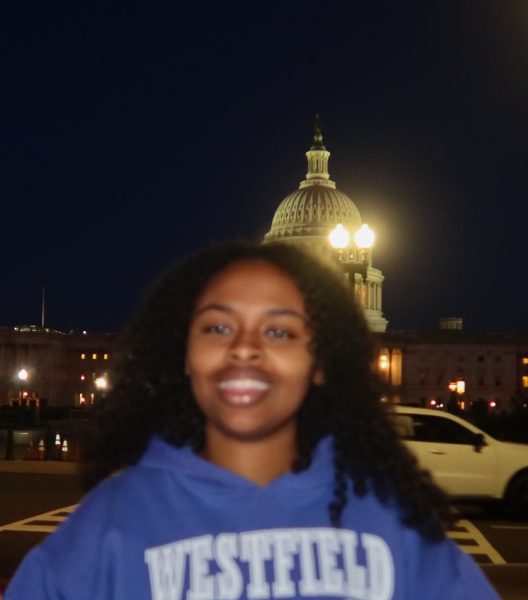In the 1940s, after “Tatler” established itself as a serious newspaper and an important campus fixture, its staff attached a motto to each issue: “To observe clearly, and speak freely.” Striving toward standards of journalistic excellence and integrity, the early days of “Tatler” were marked by the desire to be the voice of the student body, offering up opinions on the school and world around them on their behalf. Although the motto was missing from the newspaper’s issues in years after, the guiding principles behind the statement remain. But free speech does not come without controversy. So, as “Tatler” nears its 90th birthday, we wanted to look through its archives and round up times when, in speaking freely and observing clearly, “Tatler” garnered criticism from Lakeside’s community, administration, and the student body — warranted or not.
It cannot be understated that the articles printed in issues of “Tatler” are emblematic of the times and social contexts in which they are written. The voices in “Tatler” are of specific students — and, at times, members of the faculty — but their opinions and observations exist in a world that promotes certain ideals. Looking to the mid-1940s, a period marked by Pearl Harbor and the beginning of a war that many Lakeside students enlisted into, the spirit of the student body was somber yet nationalistic. In the first issue following Pearl Harbor, an editorial written by the students on “Tatler” declared that “Cooperation is essential … Accepting authority is imperative. Those placed in the position of command must be obeyed and there is no choice … If we don’t actually fight, we’ll help the ones who do.” This was an attitude that spread through the student body. In the October 1942 issue, Lakeside boys who had taken time to assist in “Uncle Sam’s war effort” by gathering scrap metal were commended for assisting “the fight for freedom.” But while students mobilized around the war effort, prejudice toward Japanese people grew among them. This was in part due to President Roosevelt’s Executive Order 9066, which established internment camps for Japanese residents, collectively accused of espionage and treason. This sentiment was apparent in issues, where the usage of a racial slur towards Japanese people was not uncommon in accounts of alumni veterans. Faculty Advisor Mr. Belgum, who had not contributed a piece to an issue before, was spurred by the racism that he saw had permeated through the student body. Belgum wrote, “I should call the attention of Lakeside students to one of our gravest social problems: race hatred.” He attributed the prejudice to false narratives of Japanese Americans’ role in the attack, which had been debunked, he claimed, by the U.S. military.
As “Tatler” entered the ’90s, it also entered the reign of Editors-in-Chief Alice Ho ’91 and Charlie Meredith ’91. During their time as editors, under the supervision of Faculty Advisor Susan Saunders, the newspaper waged war against the administration, rejecting censorship in the wake of the Supreme Court’s 1988 ruling in “Hazelwood School District v. Kuhlmeier.” The case established the precedent that a school’s administration could reserve the right to restrict student speech in school newspapers, in direct opposition to how “Tatler” had been conducted in the over 50 years prior and the ethos Saunders had cultivated alongside Ho and Meredith. With articles featuring skinheads, punk-rock fanatics affiliated with neo-Nazism; senior pages in “Numidian” censored for vulgar and misogynistic language; and an anonymous group of students who egged LGBTQ+ people in Volunteer Park, the “Tatler” of the 1990s was adamant that, regardless of how polarizing the featured perspectives were, staff maintained full control over their content. This was explicitly stated in the February 1991 issue, when Ho and Meredith were involved in a back-and-forth with administrators after “Tatler” was banned from featuring ads for religiously affiliated student groups due to Lakeside’s status as secular. Meredith was quoted as saying, “The editors should be able to create as diverse and open a paper as possible. That doesn’t mean that if the Ku Klux Klan came and asked to advertise they would be allowed to. It means that editors should make that decision.” The decisions made by editors never included featuring advertisements for KKK recruitment, but they did feature a contrasting opinion paired with each issue facing the community. This was an important choice, as the administration was leaning towards progressive ideals, despite prejudice still playing a large role in the atmosphere among students.
Despite the controversies the aforementioned articles garnered, the editors never deterred from documenting the culture Lakeside participated in; they reflected the community’s camaraderie in World War II, as well as its racism, and the homophobia and prejudice of the ’90s. But “Tatler” has missed the mark. This isn’t surprising; “Tatler” has lived in ever-changing worlds since October 5, 1934. As the student body becomes more diverse each school year, our newspaper covers distinct backgrounds while adhering to standards not present in the past (i.e., it once was permissible to include derogatory slurs in direct quotes, something unthinkable today). The fight against censorship, and in support of the First Amendment, although imperfect, paved the way for how “Tatler” operates today. A lot can change in 90 years; Lakeside definitely has. The school became a co-ed day school, gained national prestige, accepted its first Black student, piloted experiential education, expanded the community with The Downtown School, and adapted to changing times. “Tatler” no longer debates the merits of gay marriage, features ads for student groups — let alone religious ones — or has a Letter to the Editors column. But some things never change. The sound of bells ringing can be heard every hour no matter what building you’re in. Bliss is still the heart of the Upper School campus. And “Tatler” is still a paper run by students, for students. On their behalf, we aim “to observe clearly, and speak freely.”

